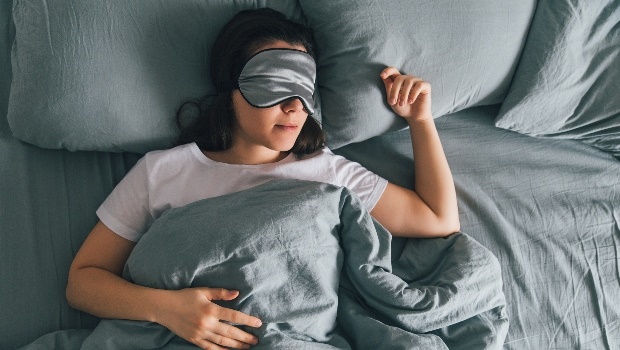
Sleep. It’s one of the body’s most basic functions and as essential to our wellbeing as food and water.
Yet for many of us, it’s a really big deal. Hours spent tossing and turning mean we wake up scratchy-eyed and crabby – and even those of us who find it easy to get a good eight hours can battle to feel refreshed and good to go-go-go.
But the solution could be as simple as finding out what kind of sleeper you are, says sleep therapist Dr Nerina Ramlakhan, author of the new book The Little Book of Sleep.
In this extract she explains how you can get meaningful shut-eye by identifying the kind of sleeper you are – and then putting a few life-changing practices in place.
What kind of sleeper are you?
Based on my work with many different types of people over 20 years, I have come up with two categories of sleep types: the Sensitive Sleeper and the Martini Sleeper, named after the well-known strapline from a 1970s Martini ad: they can sleep any time, any place, anywhere.
My clients have found this distinction helpful because it not only gives them a valuable insight into how they sleep but also into who they are.
If you’re a Sensitive Sleeper, you may wake at the slightest sound. You may be sensitive to sights, sounds and smells.
What you read or watch on TV and the conversations you have before you go to bed can affect your ability to get to sleep and stay asleep, and can even affect your dreams.
Sensitive Sleepers usually prefer to sleep in their own bed and on a certain side of the bed.
They tend to have a favourite pillow and may even travel on an airplane with it. The Sensitive Sleeper can be overly empathetic and in tune with others.
Their nervous system can be skittish and unsettled, particularly in unfamiliar environments. They feel the sadness and pain of others and can find it hard to let go of the worries of the day.
They find it difficult to set aside a problem and need to feel settled and peaceful in order to sleep restfully. In contrast, Martini Sleepers may actually sleep on a problem.
They don’t understand all the fuss about sleeping. You just do it, don’t you?
However, they can fall prey to oversleeping or hypersomnia and then wake feeling sluggish and unmotivated.
These two sleep types are not fixed and they can change. Major life events may lead a Martini Sleeper to become more sensitive.
A Sensitive Sleeper, by learning more about themselves, their inner world and how they deal with life, can become more Martini-like.
Your sleep type can also change according to the situation you’re in. Certain people sleep well most of the week but become more sensitive on a Sunday night when the work week looms ahead.
Many people are becoming Sensitive Sleepers as a result of the pace of life, noise, light levels, constant demands and over-stimulation from technology.
Lessons from the East
Ayurveda – an ancient system of medicine with roots in Indian philosophy – believes that every individual is unique and there’s no one size fits all solution.
According to Ayurveda, every individual is made up of a unique combination of three main doshas or energies, which give them their unique physiology and psychology.
Here are the doshas and how their imbalances give rise to not only physical ailments but also sleep disturbance.
Vata The air energy that’s related to motion – heartbeat, circulation, breathing, blinking.
Imbalance: Overthinking, unable to fall asleep and/or stay asleep, feeling tired but wired, worrying about the day’s events, unable to stop thinking, shallow and restless sleep, waking tired.
Pitta The fire energy that’s related to metabolic systems including digestion, absorption, nutrition and body temperature.
Imbalance: No problem falling asleep but waking in the early hours and unable to get back to sleep. People who are experiencing stress and emotional trauma are prone to this.
Kapha The water energy that’s related to growth in the body. It maintains the water balance in the body, moisturises the skin and maintains the immune system.
Imbalance: Oversleeping or hypersomnia. The person sleeps long and deeply but still feels exhausted. Lethargy persists throughout the day.
Sleep right for your type
Vata Avoid mental overstimulation at night. A regular wind-down routine is important. Aim to be in bed early – around 9.30pm – to calm your mind. Work on letting go to calm the vata element.
Pitta Keep your bedroom cool. Sprinkle eucalyptus oil on your pillow. Avoid competitive exercise close to bedtime. Avoid overly spicy foods at nighttime and minimise your intake of caffeine and alcohol.
Kapha Wake up early – ideally before 6am. Set an alarm clock and put it in another part of the bedroom so you have to get up to switch it off. Vigorous exercise in the morning is good. Keep active during the day and avoid sitting for too long. Eat lightly in the evening and avoid heavy carbohydrate-based meals.




 Publications
Publications
 Partners
Partners
















